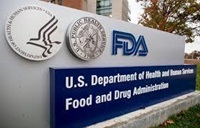
In July 2023, we changed our name from AACC (short for the American Association for Clinical Chemistry) to the Association for Diagnostics & Laboratory Medicine (ADLM). The following page links to resources that were written prior to the rebranding and/or mentions events that took place prior to the rebranding and that contain mentions of the association’s old name.
Laboratory developed tests (LDTs) are proprietary tests that clinical labs create for in-house use whenever a commercial test does not exist or is not appropriate for a particular patient health issue. For example, a lab may develop an LDT to monitor a rare disease or screen for a new designer drug. These tests are at the cutting edge of clinical laboratory science and play a vital role in providing quality healthcare in the face of patients’ changing medical needs.
Regulation of LDTs is currently overseen by the Centers for Medicare and Medicaid Services (CMS) through the Clinical Laboratory Improvement Act (CLIA). Under CLIA, laboratories are required to clinically and analytically validate any LDTs and adhere to strict quality control and proficiency standards.
Although CLIA provides robust safeguards, there has been an ongoing debate over whether Food and Drug Administration (FDA) regulation is more appropriate for LDTs. The coronavirus pandemic reinvigorated this debate and vividly illustrated the stakes as clinical laboratories struggled to rapidly scale-up testing in the face of significant regulatory obstacles from FDA’s emergency use authorization requirements.

The Verifying Accurate, Leading-edge IVCT Diagnostics (VALID) Act, reintroduced in the 117th Congress by Representatives Larry Bucshon (R-IN) and Dianne DeGette (D-CO), proposed extending Food and Drug Administration (FDA) regulatory oversight over laboratory developed tests (LDTs) on top of the existing regulatory framework overseen by the Centers for Medicare and Medicaid Services (CMS) through the Clinical Laboratory Improvement Amendments (CLIA).
Throughout 2021 and 2022, supporters of the legislation pushed for its inclusion in FDASLA, the then-pending FDA user-fee agreement, which is negotiated every five years and considered “must-pass” legislation. When that effort was defeated, VALID’s supporters sought to include it in the year-end fiscal year 2023 spending package. The Association for Diagnostics & Laboratory Medicine (formerly AACC), and its members, along with the efforts of its partner organizations, succeeded in keeping the measure out of the final bill.
Following the failure of legislation that would empower FDA to regulate LDTs, the agency has turned to the notice-and-comment rulemaking process. On April 29, 2024, the agency published a final rule detailing how it would approach unilaterally establishing its own LDT framework. ADLM and many other stakeholders expressed strong opposition to the rule when it was initially proposed in 2023. These concerns have been thoroughly detailed in the association's comments to the agency.
Many observers in the lab community have questioned the wisdom of putting the agency in charge of regulating LDTs. The Association for Diagnostics & Laboratory Medicine (ADLM) has long maintained that any update to the regulation of LDTs should occur through CLIA. The association endorsed VITAL, legislation that would codify LDTs under CLIA, shortly after its introduction. ADLM and many other stakeholders share concerns that FDA oversight of LDTs will prove burdensome and inevitably limit patient access to these critical tests.
Additional Resources
ADLM Position Statements
Policy Briefs
Video Presentations
ADLM Letters to Congress
ADLM Letters to FDA
From Other Organizations
Government Resources